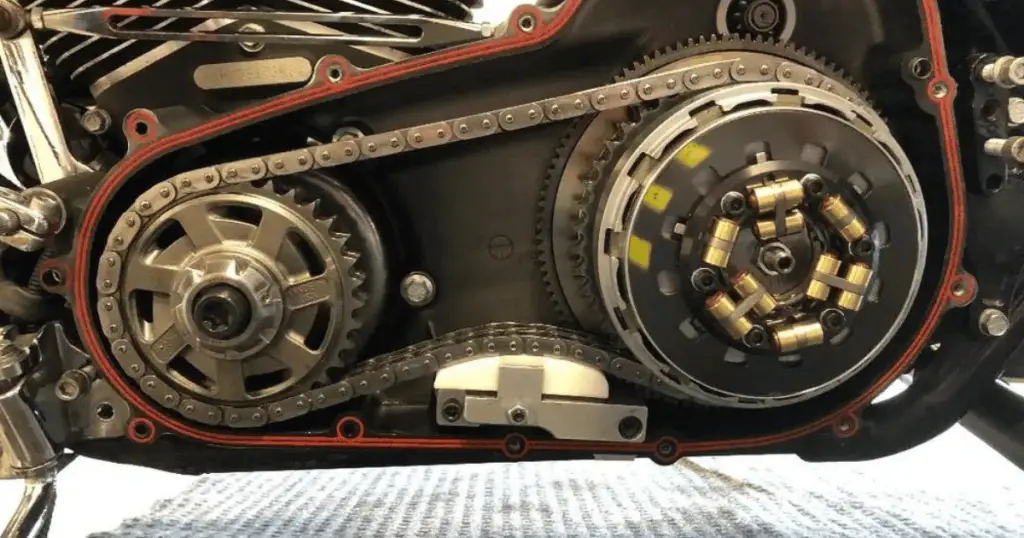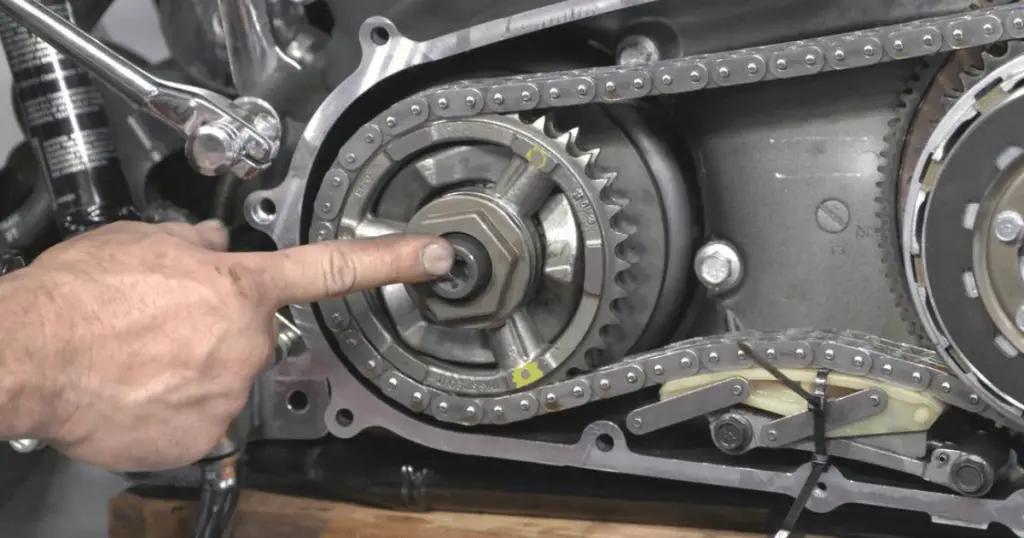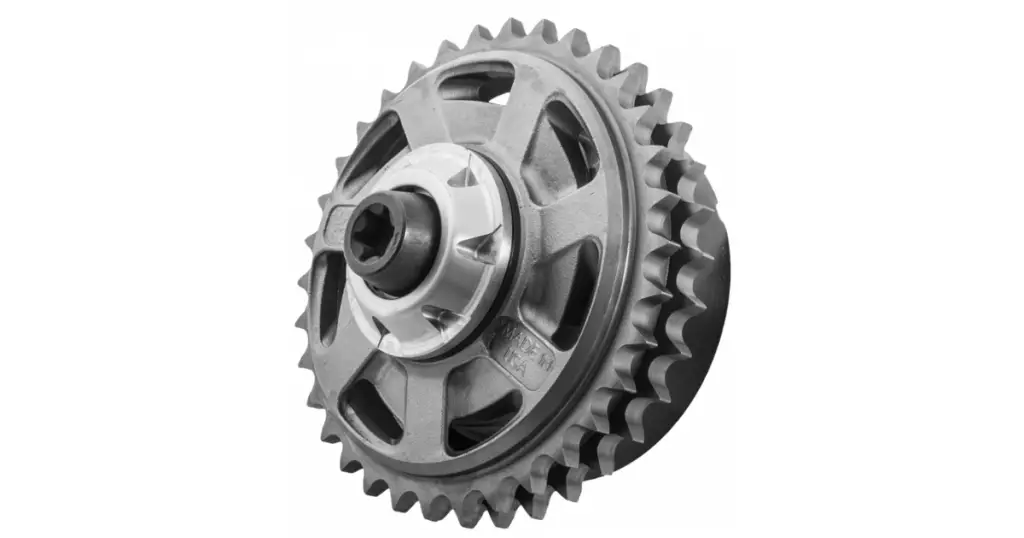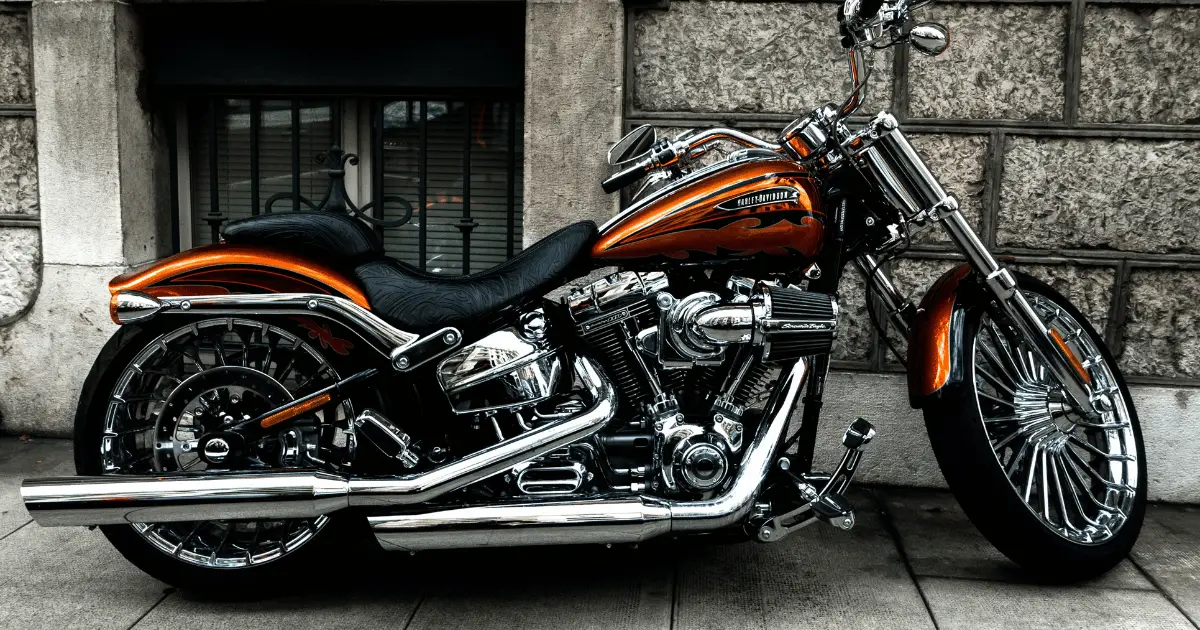Last Updated on December 12, 2023 by Pittalks
There’s nothing quite like the rumble of a Harley beneath you, the open road ahead, and the freedom it brings. However, with any beloved machine, wear and tear can sometimes hamper this joyful ride. One such potential hassle is a worn out Harley compensator. Now, for the uninitiated, diagnosing and fixing a Harley compensator may seem as daunting as conquering the open road once did. But fear not! This guide is designed to effortlessly walk you through the tall task of diagnosing and restoring your Harley compensator. So, if you’ve been noticing that jarring clunk when starting your motorcycle, or your Harley seems to lack its classic smooth gear changing, then it may well be that your compensator is calling for care. Hesitate no more, ride on, and give this guide a read. No mechanic? No problem! You’re just a click away from navigating your path to a smoother ride. Ready? Let’s get to it.
What Does A Compensator Do On A Harley?

The compensator in a Harley Davidson bike serves a pivotal role. It acts as a shock absorber for the starter mechanism, smoothing out any irregular pulses generated by the engine. This ensures that these pulses aren’t transmitted along the drivetrain, causing discomfort to the rider or premature wear and tear of components.
Deep Dive into Compensator’s Functionality
The compensator is designed to balance the forces exerted by the engine on the drivetrain. It absorbs torque spikes, reducing stress on other components of the motorcycle, such as the transmission and drive belt or chain. This prolongs the life of these parts and enhances the motorcycle’s reliability. Plus, the smoother power delivery also translates to a more comfortable and controlled riding experience.
How To Tell If A Harley Compensator Is Bad
Identifying a bad compensator is crucial for maintaining the optimal performance of your Harley. Here are some telltale signs:

Sprocket Noises
One of the earliest indicators of a faulty compensator is a loud, clanking noise emerging from your bike’s primary. It may sound as if rocks or marbles are being tossed around inside the primary cover. This noise is often most noticeable when starting the bike.
Difficulty Starting
If your Harley is having problems starting or refuses to start when hot, it could be due to a worn-out compensator. The compensator’s role in the smooth functioning of the starter mechanism means that any issues with the compensator can directly impact the bike’s starting process.
Reduced Performance and Stuttering
Frequent kickbacks are another sign of a failing compensator. Kickbacks occur when the air/fuel charge in a piston fires prematurely, before the piston has had a chance to reach the top center. A faulty compensator can lead to more frequent kickbacks, leading to stuttering and misfires.
Overview of Harley Bad Compensator Symptoms
Compensator issues can manifest in various ways. From internal sprocket noise, starting issues, to frequent misfires and stuttering, these symptoms can significantly affect your ride’s quality. Understanding these signs can help you diagnose and fix the issue before it escalates.
Internal Sprocket Noise
The unpleasant clunking sound or noise is a common sign of a bad compensator. If you’ve ridden with other bikers, you’ll notice that this is a shared experience among bikers. This sound is often caused by worn-out compensator parts.
Starting Issues
Another possible sign of a bad compensator is having issues with starting your bike. In most cases, the bike will refuse to start when hot. This failure of the compensator to absorb the rough pulses from the engine during the startup can lead to starting problems.
Frequent Kickbacks, Misfiring, and Stuttering
Frequent kickbacks are another sign of a failing compensator. Kickbacks occur when the air/fuel charge in a piston fires prematurely, before the piston has had a chance to reach the top center. A faulty compensator can lead to more frequent kickbacks, leading to stuttering and misfires.
What Engines Are Affected Most?
Harley Davidson’s Twin Cam engines are the most affected ones. These engines, known for their high torque output, often exert more stress on the compensator—leading to quicker wear and tear. Therefore, if you own a Harley with a Twin Cam engine, paying close attention to the compensator’s health is crucial. In particular, the Harley 103 was most affected.
How To Diagnose A Worn Out Compensator
Diagnosing a bad compensator can be tricky, but there are a few things you can check. Start by listening for the aforementioned clanging or clunking noises, particularly on startup. You can also check for excessive vibration or difficulty shifting into first gear or neutral.
An effective way to ensure the compensator’s status is by opening it and inspecting it. The presence of metal particles in the primary oil can signify that the compensator is wearing out and shedding metal.
Can You Replace A Compensator At Home?
Yes, if you’re mechanically inclined, you might be able to tackle the replacement of the compensator yourself. However, it’s a complex job that requires a good understanding of the inner workings of a Harley Davidson motorcycle.

Step-By-Step Repair and Replace Guide for Harley Compensators
Here’s a simplified guide on how to replace a faulty compensator:
- Start by draining the chaincase fluid.
- Remove the clutch covers.
- Check for obvious defects.
- Inspect the compensator parts.
- Clean and maintain the parts.
- Replace the faulty compensator with a new one, following the torque specifications in your service manual.
Remember, this is a highly simplified guide, and the actual process can be much more complex. If you’re not comfortable with this level of mechanical work, it’s best to leave it to the professionals.
Ending Thoughts
Harley compensator problems can cause a wide range of issues, from loud noises to starting problems. However, with the right knowledge and resources, it’s possible to diagnose and fix these issues. Whether you choose to tackle the job yourself or leave it to the professionals, remember that timely maintenance is key to preventing compensator problems in the first place.
By being vigilant about maintaining your bike’s compensator, you can ensure a smoother ride and prevent potential complications. So, keep an eye out for the signs of a worn out Harley compensator, and take action as soon as you spot any issues.
Related reads:
> What Year Harleys to Avoid (A Comprehensive Guide)
> Street Glide Years to Avoid (A Comprehensive Overview)
> Road Glide Years to Avoid (A Comprehensive Overview)
> Electra Glide Years to Avoid (A Comprehensive Overview)
> Road King Years to Avoid (A Comprehensive Overview)
> Harley Twin Cam Years to Avoid: A Comprehensive Guide
Frequently Asked Questions
Common signs of a bad Harley compensator include a loud clunking or rattling noise from the primary drive area, especially during startup or when the engine is under load. Riders may also experience a rough or jerky feeling when accelerating or decelerating, indicating that the compensator is not effectively smoothing out the engine’s power delivery.
A Harley compensator can wear out due to several factors, including regular wear and tear from extended use, lack of proper lubrication, and excessive strain from aggressive riding or heavy load carrying. Over time, the internal components of the compensator can degrade, leading to reduced effectiveness and potential failure.
Yes, a worn compensator can cause transmission problems. Since the compensator is integral to the smooth operation of the drive system, a failing compensator can lead to increased wear and tear on the transmission. This can result in transmission noises, rough shifting, and in severe cases, transmission failure.
The lifespan of a Harley compensator can vary depending on several factors such as riding habits, maintenance routine, and the specific model of the motorcycle. On average, a well-maintained compensator can last for tens of thousands of miles. However, aggressive riding or poor maintenance can significantly reduce its lifespan.


